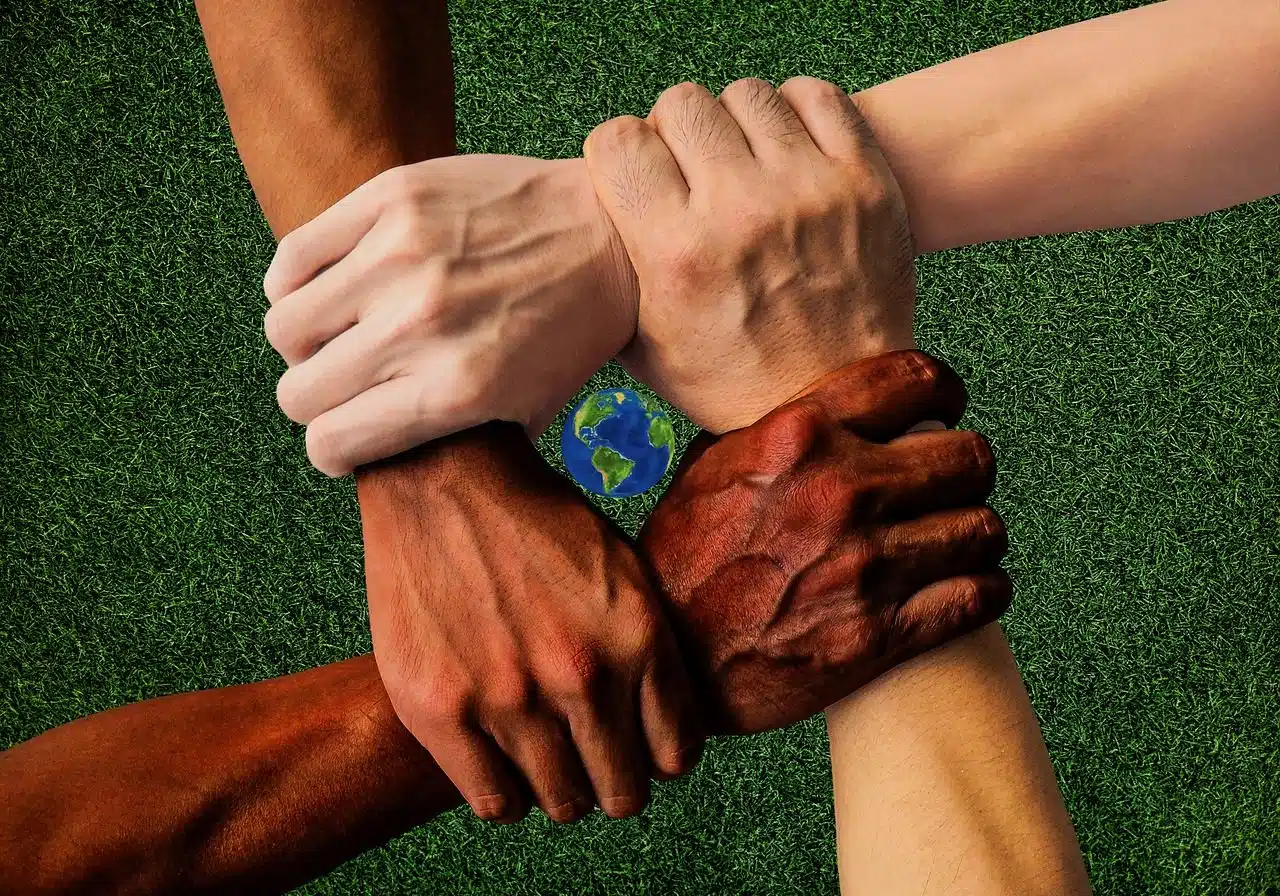
Social integration allows us all to participate in society.
Social integration is a process through which people are fully and participatively incorporated into the society in which they live, regardless of their ethnic, cultural, economic origin, gender, sexual orientation, disability or other personal characteristics. This implies that all individuals have equal opportunities to access the resources, services and rights available in society, without suffering discrimination or stigmatization .
In the contemporary context, social integration is of utmost relevance and necessity for several reasons. For example, to support cultural diversity , something that is increasingly appreciated in today's societies, in their languages and traditions, due to immigration and globalization . Social integration promotes harmonious coexistence between people of different cultural origins, fostering mutual understanding and respect .
Social integration is also essential to ensure social inclusion that no member of society is excluded. This contributes to the construction of more just and equitable societies. It also strengthens social cohesion by reducing tensions, conflicts and divisions between groups. When people feel included and valued, they are more likely to collaborate and work together to achieve common well-being.
Finally, social integration is intrinsically related to respect for human rights , of which ensuring that all people have equal opportunities and are treated with dignity is a fundamental principle.
Pillars of social integration
The pillars of social integration are fundamental to building inclusive and harmonious societies in an increasingly diverse and complex world. They are inclusion, diversity, respect and tolerance .
Inclusion implies ensuring that all people, regardless of their ethnic, cultural origin, gender , sexual orientation , disability or other personal characteristics, have equal opportunities to participate fully in society. That they have a voice, access to resources, services and rights, and feel valued and an active part of the community . The importance of inclusion lies in promoting social justice and equity , which in turn contributes to social well-being .
Diversity refers to the variety of personal characteristics, cultures , beliefs and experiences that exist in a society. Instead of considering it a problem or a source of conflict, it is valued as a strength. It is recognized that each individual brings a unique and enriching perspective. Diversity promotes creativity, innovation and social adaptation, which is essential in a constantly changing world.
Respect and tolerance are the pillars that support a culture of peace and intercultural dialogue in society. Respect involves recognizing the dignity of each individual and treating others with courtesy and consideration, regardless of differences. Tolerance , for its part, means accepting and respecting differences, even when we do not share the same opinions or beliefs. The culture of peace and dialogue is based on the ability to resolve conflicts peacefully and promote mutual understanding.

Equal employment opportunities is a key area of social integration.
Key areas
Key areas of social integration include education, work and public spaces, and are essential to promote equal opportunities and active participation of all members of society.
Inclusive education is an approach to school integration that ensures that all students have access to quality education. This involves adapting teaching methods and the educational environment to meet the needs of all, including those with disabilities, learning difficulties, diverse cultural backgrounds and other challenges. It promotes interaction and understanding between people of different origins, which contributes to the construction of more open and understanding societies.
Labor integration is essential for the economic and social participation of individuals. Labor inclusion policies seek to guarantee that all people have equal opportunities to access employment and advance in their careers. They seek to eliminate discrimination in the workplace and promote inclusive environments. Workplace integration not only benefits individuals, but also contributes to economic development by making the most of the talent and diversity of the workforce.
Public spaces play an important role in people's daily lives and are vital for social integration. Inclusive urbanism refers to the design of cities and communities that are accessible and welcoming to everyone, regardless of mobility, disability or age. The construction of infrastructure that allows everyone to participate in urban life, including accessible sidewalks, public transportation and adapted recreation areas.

It is essential to educate society in respect and tolerance.
Effective tools and strategies
The promotion of social integration requires the implementation of effective tools and strategies that address various areas and levels of society. Among the most important are:
- public policies : governments at the local, regional and national levels can design specific programs and policies aimed at integration . These may include anti-discrimination measures, equitable access to public services, promoting diversity in employment and supporting marginalized communities;
- Media and social media : Media can play an important role in presenting diverse stories and perspectives, encouraging understanding and empathy towards different groups, avoiding stereotypes and negative representations. Social media can also be powerful tools to promote social integration, allowing the spread of positive messages and the creation of online communities that support diversity and equality;
- Education and awareness – Educational efforts may include diversity and human rights training in schools and workplaces, as well as community awareness programs. Education promotes understanding of cultural, ethnic and gender differences, and fosters respect and empathy for others. It is also important to address prejudices and stereotypes through campaigns that challenge discriminatory attitudes;
- active participation : of individuals and communities in decision-making and public life. This involves creating spaces where everyone's voices are heard and respected. It may include the formation of support groups , advisory councils, and the promotion of active citizenship in politics;
- alliances and collaboration : collaboration between governments, non-governmental organizations, businesses and civil society is essential to promote social integration. Creating alliances and participating in projects and programs that address inclusion and diversity can multiply the impact of efforts in this direction.
